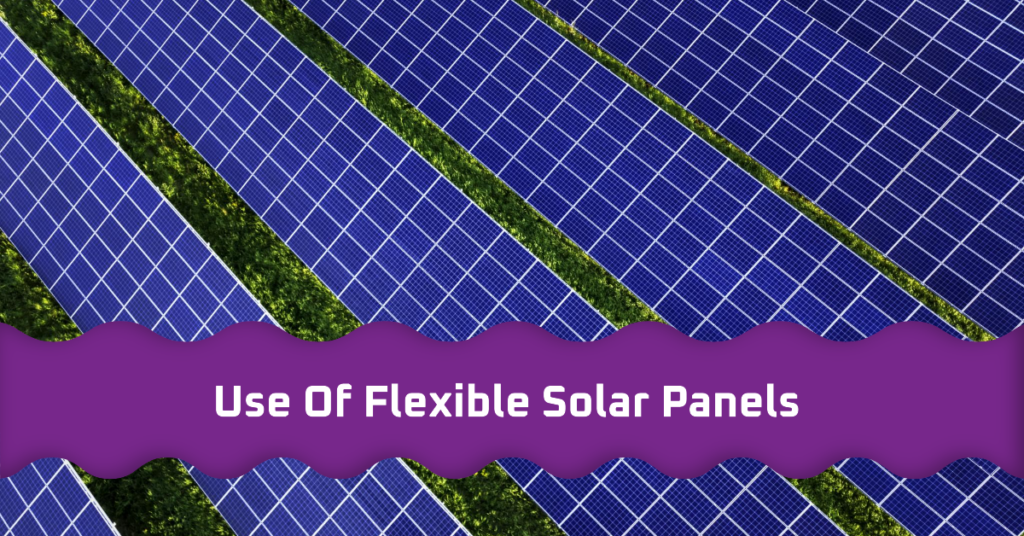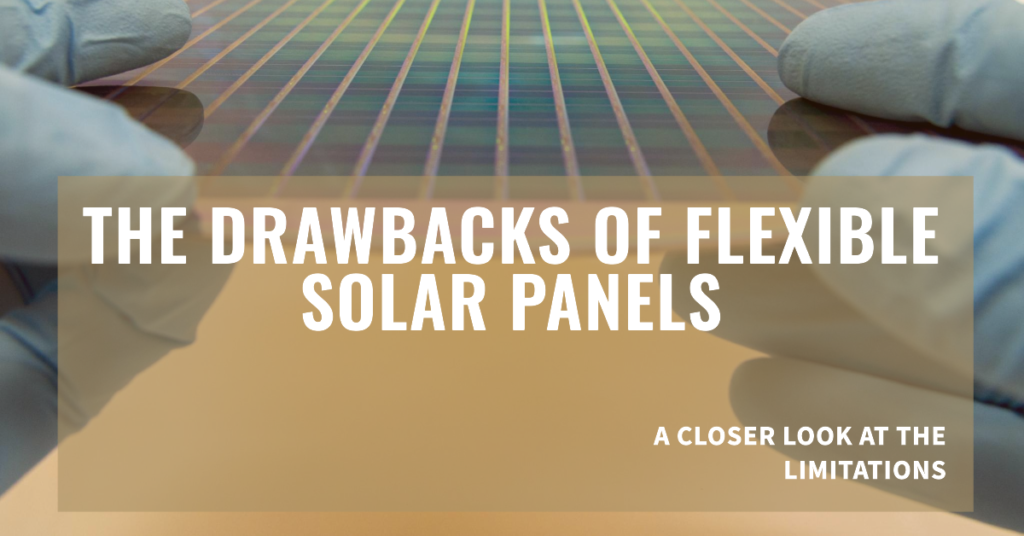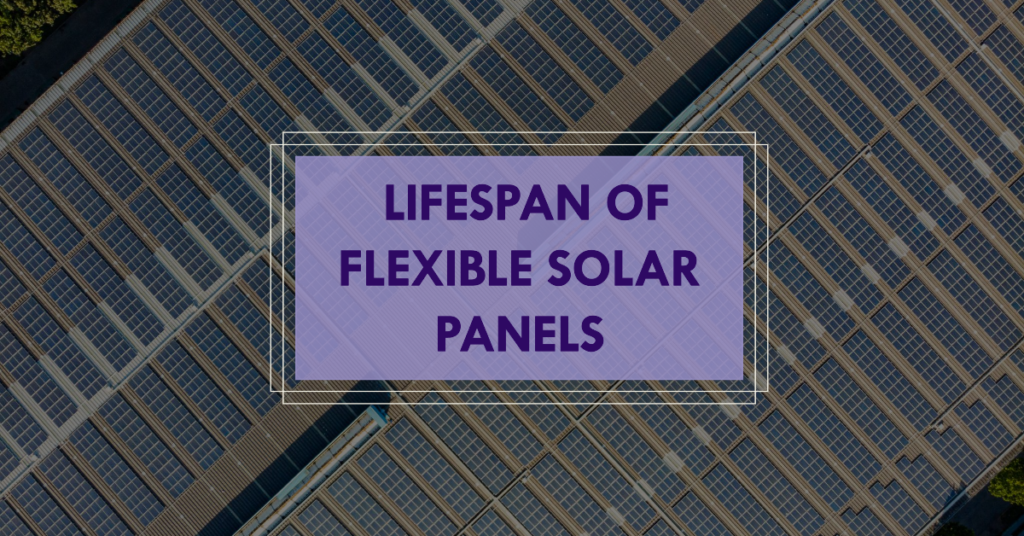What Are Flexible Solar Panels?: A Guide to Flexible Solar Panels

Imagine solar panels that bend and curve, unlike their rigid counterparts. This is the magic of flexible solar panels, also known as bendable solar panels or thin-film solar panels.
These innovative panels are made with lightweight materials that allow them to conform to various surfaces, opening up a world of possibilities for capturing the sun’s energy.
How Flexible Panels Work
Similar to traditional solar panels, flexible solar panels convert sunlight into electricity using the photovoltaic effect. Light photons hit the solar cells, knocking loose electrons and creating an electric current.
However, instead of the glass and metal frame used in traditional panels, flexible panels utilize lightweight and bendable materials like plastic or thin metal films. This construction makes them portable, lightweight, and adaptable to various applications.
Uses of Flexible Panels
The unique properties of stretchable solar panels make them ideal for a diverse range of applications:

- RVs and boats: Due to their lightweight and flexible nature, they can be easily mounted on curved surfaces like RV roofs or boat decks, providing off-grid power.
- Uneven surfaces: Unlike rigid panels, flexible ones can conform to uneven surfaces like curved rooftops, car hoods, or tents, making them a versatile option.
- Portable power: Their lightweight design makes them ideal for portable chargers for camping, hiking, or emergencies.
- Building integration: Architects can incorporate these panels into building elements like facades or curved roofs, creating a blend of aesthetics and functionality.
Limitations of Flexible Solar Panels
While stretchable solar panels offer exciting possibilities, they do come with some limitations:
- Lower efficiency: Compared to traditional panels, flexible panels generally have lower efficiency in converting sunlight into electricity.
- Durability: While durable, they might be more susceptible to punctures or tears compared to the sturdier glass and metal construction of traditional panels.
- Cost: Currently, flexible solar panels tend to be more expensive per watt compared to traditional panels.
What are the Benefits of Flexible Solar Panels?
Despite the limitations, Bendable solar panels offer several advantages:
- Versatility: They can be mounted on a wider range of surfaces due to their bendability.
- Portability: Their lightweight design makes them easy to transport and install in remote locations.
- Aesthetics: They offer a sleek and modern look, potentially enhancing the aesthetics of buildings or other structures.
- Durability: They are resistant to harsh weather conditions and can withstand some degree of bending and flexing.
What are the Downsides of Flexible Solar Panels?

It’s important to consider the downsides of Bendable solar panels as well:
- Lower efficiency: As mentioned earlier, they generally have lower efficiency in converting sunlight into electricity, meaning they might require more panel area to generate the same amount of power.
- Higher cost: Currently, they are more expensive per watt compared to traditional panels, making them a less cost-effective option in some situations.
- Durability concerns: While durable, they may be more susceptible to damage compared to traditional panels, requiring extra care during installation and use.
Pros and Cons of Flexible Solar Panels
To summarize, here’s a quick comparison of the pros and cons of flexible solar panels:
Pros:
- Versatile and adaptable to various surfaces
- Portable and easy to transport
- Aesthetically pleasing and modern design
- Durable and weather-resistant
Cons:
- Lower efficiency compared to traditional panels
- Higher cost per watt
- May be more susceptible to damage
When Should You Install Flexible Solar Panels?
Flexible solar panels are a great option for individuals or businesses seeking:
- Power for off-grid applications: RVs, boats, or remote locations where traditional panel installation might be challenging.
- Power on uneven surfaces: Curved roofs, tents, or other non-flat surfaces where traditional panels wouldn’t fit.
- Portable power solutions: Camping trips, hiking adventures, or emergencies where a portable power source is needed.
- Aesthetic considerations: When integrating solar power into buildings while maintaining a sleek and modern look.
Can You Use Stretchable Solar Panels on Roofs?

Flexible solar panels can be used on roofs, particularly those with curves or uneven surfaces. However, it’s crucial to ensure they are properly mounted and secured to withstand weather conditions. Traditional panels might be a better choice for standard, flat rooftops due to their higher efficiency and potentially lower cost.
How Much do Flexible Solar Panels Cost?
The cost of flexible solar panels varies depending on factors like wattage, size, and brand. Generally, they are
more expensive per watt compared to traditional panels. Expect to pay anywhere from $3 to $7 per watt, whereas traditional panels might cost around $1 to $3 per watt. While the initial cost might be higher, the unique applications and portability benefits of flexible panels might outweigh the cost for certain users.
Can you use tax credits or incentives for stretchable solar panels?
The availability of tax credits or incentives for Bendable solar panels can vary depending on your location and specific policies. It’s recommended to check with your local government or renewable energy agencies to see if they offer any incentives for this type of solar technology.
What is the lifespan of Flexible Solar Panels?

Bendable solar panels typically have a lifespan of around 10-20 years, similar to traditional panels. However, several factors can affect their lifespan, including:
- Exposure to sunlight: Excessive sunlight can degrade the materials over time.
- Extreme weather conditions: Harsh weather conditions like hail or strong winds can damage the panels.
- Maintenance: Regular cleaning and maintenance can help extend their lifespan.
Conclusion
Flexible solar panels offer a unique and innovative solution for harnessing solar energy. They are particularly well-suited for off-grid applications, uneven surfaces, and portable power needs.
While they come with limitations like lower efficiency and higher cost compared to traditional panels, their versatility, portability, and potential aesthetic benefits make them a valuable option for specific situations.
Carefully consider your needs and weigh the pros and cons before making a decision. If you are unsure whether Bendable solar panels are the right fit for you, consulting with a renewable energy professional can help you make an informed choice.
Also Read: Light Weight Solar Panels: Shining a Light on Portable Power
